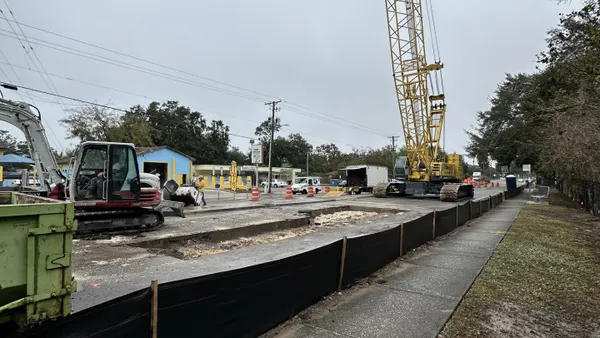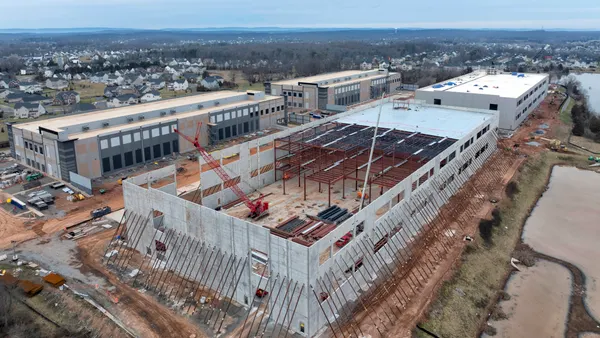Dive Brief:
- Canada's new Public Transit Infrastructure Fund, the first phase of a nationwide $93 billion infrastructure financing plan, will provide approximately $1.1 billion for infrastructure projects in Ontario, paving the way for a total of $2.3 billion for the province, according to RT&S.
- Under the Public Transit Infrastructure Fund, the Canadian government contributes up to 50% of eligible infrastructure projects.
- The province-wide initiatives include bicycle lanes and parking, new subway cars, transportation station improvements, new buses, rail work, sidewalk improvements and vehicle parking projects.
Dive Insight:
The U.S.'s neighbor to the north has consistently set an example for infrastructure planning and funding, and it even scored a mention in Brendan Bechtel's November USA Today op-ed piece. In the editorial, Bechtel, slated to take over the CEO position of the nation's largest construction and engineering firm this fall, touted the importance of public-private partnerships in tackling America's infrastructure problems and pointed to Canada's Infrastructure Ontario as an example of how to model them.
Infrastructure in the U.S. is primarily the responsibility of each state but is funded significantly through the federal government. Nevertheless, the scramble for enough state money to achieve even a small percentage of the necessary repairs and upgrades needed to fix crumbling roads and bridges can sometimes lead to serious infighting among lawmakers.
In the latest example, after negotiations around a gas-tax funded solution to New Jersey's nearly depleted infrastructure account failed, Gov. Chris Christie shut down all of the state's non-critical transportation-related projects. Christie has since rejected a revised Democrat proposal because he said it didn't offer enough taxpayer relief to counteract the rise in the gas tax, but he later issued an executive order authorizing the general fund to subsidize "essential" transportation projects,. Other states like Illinois have passed stopgap measures to avoid shutdowns like the current one in New Jersey.
According to a May report from the American Society of Civil Engineers, the U.S. is headed toward a national infrastructure crisis if it can't figure out how to close the gap of a predicted $1.44 trillion infrastructure funding shortfall. In addition to creating a job deficit of 2.5 million and a loss of $4 trillion in gross domestic product over the next 10 years, the shortfall could rise to $5.18 trillion by 2040.










